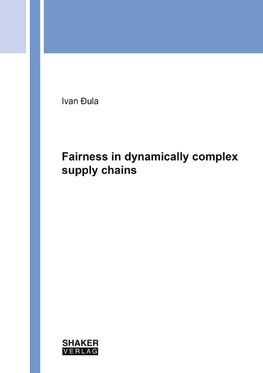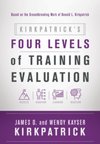
-
 Anglický jazyk
Anglický jazyk
Fairness in dynamically complex supply chains
Autor: Ivan Ðula
This dissertation investigates the existence and the impact of fairness in the context of dynamically complex supply chains. Fairness can be defined as impartial and just treatment, or behavior without favoritism or discrimination. It means giving each person... Viac o knihe
1 kus - skladom u vydavateľa Posielame do 7-10 dní
44.82 €
bežná cena: 49.80 €
O knihe
This dissertation investigates the existence and the impact of fairness in the context of dynamically complex supply chains. Fairness can be defined as impartial and just treatment, or behavior without favoritism or discrimination. It means giving each person what they deserve. Within economic research, it is often modeled as a social preference known as inequity aversion, which states that fair-minded individuals dislike inequitable monetary outcomes. Several models of inequity aversion have been developed and used to study and explain human behavior in economic environments. These models, however, are limited in terms of their applicability to economic environments with multiple decision-makers interacting repeatedly with each other over an extended period of time. The first part of this dissertation identifies the most commonly used models of inequity aversion in the extant literature in order to overcome their limitations with regard to addressing dynamics. The extended models are then used in the second part for a computer-based simulation study, which investigates the effects of inequity-averse decision-makers in the context of the Beer Distribution Game. The simulation results are used to develop several hypotheses that are tested in an experimental study presented in the third part. It is concluded that inequity aversion plays an important role in the experience of a supply chain decision-maker, even when there is only one human actor in the supply chain, with others being replaced by a computer algorithm. Furthermore, contrary to the established literature, it is not the factory (i.e. the furthest upstream) stage that suffers the most in the supply chain experiencing progressive order amplification. If the supply chain includes fair-minded decision makers, it is the distributor stage that suffers the most due to perceived supply chain unfairness (being a result of its limited freedom to act and to influence supply chain performance).
- Vydavateľstvo: Shaker Verlag
- Rok vydania: 2023
- Formát: Paperback
- Rozmer: 208 x 146 mm
- Jazyk: Anglický jazyk
- ISBN: 9783844091281











